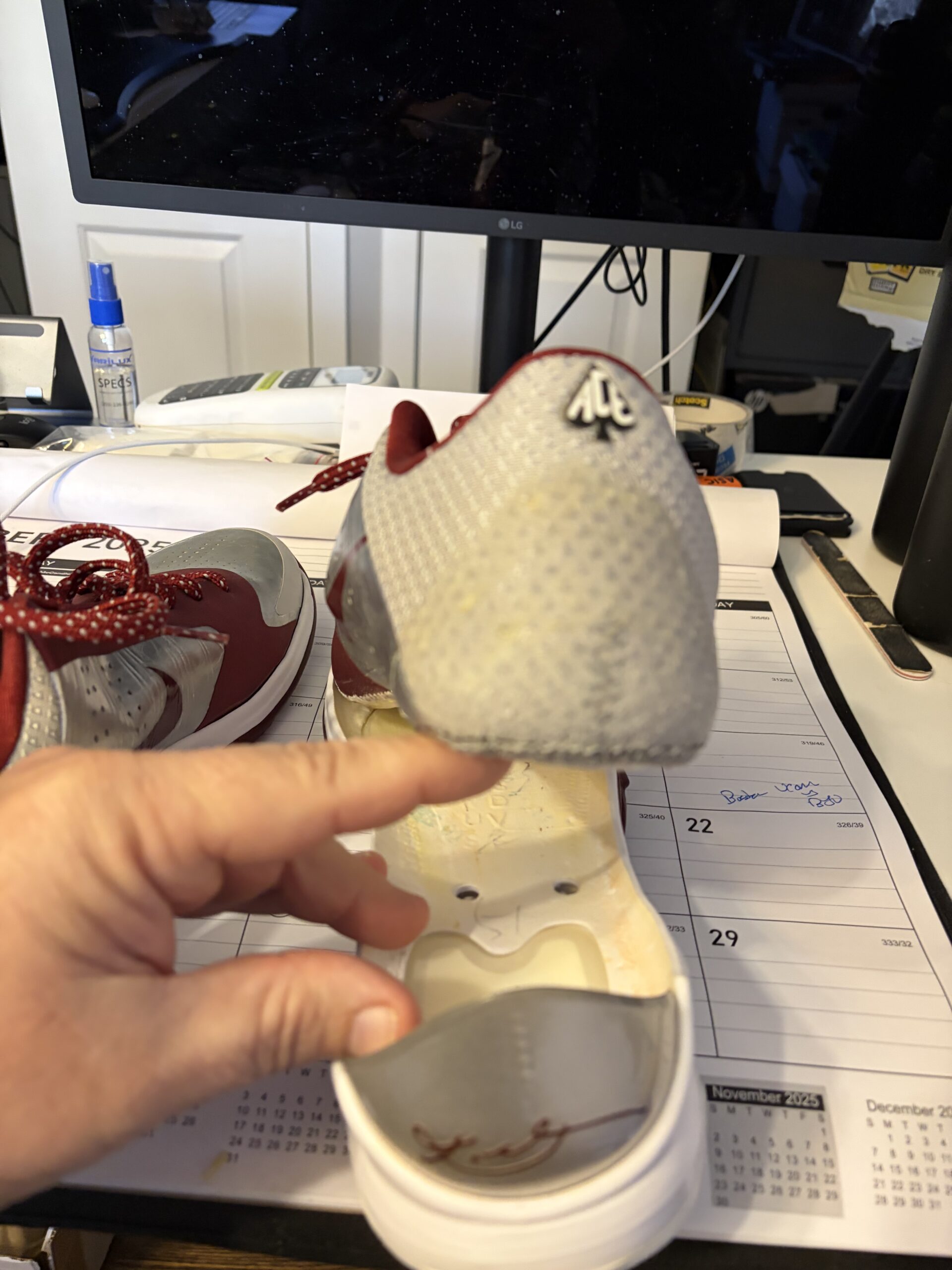Part 1 of 5 in our series on what college coaches look for at every position
[← Back to Series Introduction] | [Next: Shooting Guard →]
Welcome to Part 1 of our College Recruit Blueprint series, where we break down exactly what college coaches look for at every position on the basketball court. If you’re serious about playing at the next level, you need position-specific knowledge – not generic advice. This series gives you the exact framework college coaches use when evaluating recruits. Each position has unique physical requirements, technical skills, basketball IQ expectations, and intangibles that matter most. Over these five posts, we’ll cover point guard, shooting guard, small forward, power forward, and center – giving you the complete blueprint for your position.
Today we start with the floor general – the point guard. This is where games are won and lost, where leadership meets skill, and where basketball IQ separates the good from the great.
POSITION 1: POINT GUARD
The floor general who controls everything – you’re the coach on the court making everyone around you better while getting yours when it’s time.
As a point guard, you’re not just another player on the floor – you’re the extension of your coach. College coaches need someone who can run the offense with precision, elevate their teammates, and take over games when it matters most. This breakdown will show you exactly what separates high school point guards from college-level floor generals.
1. Physical Requirements
Speed and quickness: First step different; blow by cats like they standing still; lateral quickness crazy – can’t nobody shake you
Strength and physicality: Built different; take the bump and still get buckets; ain’t getting moved off your spot by nobody
Athleticism and explosiveness: Bounce is stupid; shift into another gear whenever; got that shake that makes defenders look silly
2. Technical Skills (Offense)
Primary scoring responsibilities: Can go get a bucket whenever; break down the defense like it’s nothing; make ’em pay when they leave you open
Shooting range and accuracy: Stroke is pure (33%+ from deep); cash from mid; never miss from the line (75%+); they gotta pick you up at half court
Ball-handling requirements: Handle different – both hands equally cold; got every move in the bag; rock stay glued to your hand; protect the pill no matter what
Passing and playmaking: Vision unreal; drop dimes in traffic; get your teammates easy money; assist to turnover ratio crazy
3. Technical Skills (Defense)
Primary defensive assignment: Put the clamps on their best guard; make ’em feel you all game
On-ball defense expectations: Full court pressure; make everything hard; slip every screen; keep your man on an island
Help defense and positioning: Always yelling out switches; help when your boy gets cooked; snatch steals like it’s nothing
Rebounding responsibilities: Snag boards on your end; get the rock and go
4. Basketball IQ
Court awareness and vision: See everything; three passes ahead of everyone else; know what’s coming before it happens
Decision-making under pressure: Always make the winning play; know when to attack and when to set the table; run the show
Understanding of spacing and timing: Control the pace; know when to go fast and when to slow cook; keep the offense flowing
System/scheme knowledge: Know every set cold; read defenses easy; make adjustments on the move
5. Intangibles
Leadership qualities: That dawg in you; everyone follows your lead; show ’em how it’s done
Communication skills: Talking all game; running the show; keeping everybody dialed in
Work ethic and coachability: First one in, last one out; soak up game from coaches; turn weaknesses into strengths
Mental toughness and competitiveness: Built for the moment; want the ball when it’s winning time; shake off mistakes quick; got that killer instinct
NBA COMPS

Elite tier: CP3 (pure hooper, genius IQ), Steph (bucket + playmaker), Luka (big guard who see everything)
Score-first guards: Dame (logo range), Ja (bounce out the gym), Fox (speed demon)
True floor generals: Hali (smooth operator), Melo (flashy passer)
The Point Guard Difference
Here’s what separates college-level point guards from everyone else: you’re not just playing basketball, you’re controlling the entire game. Coaches need someone they can trust to be their voice on the floor, to make the right decision every single time, and to elevate everyone around them.
The best point guards make their teammates better. You might score 15 points, but if you got your teammates 8 assists on open looks because you drew the defense and made the perfect pass, that’s 16+ points you created. College coaches see that. They value point guards who understand that winning is more important than individual stats.
Study the NBA comps listed above. Watch how CP3 controls tempo and never makes mistakes. See how Steph spaces the floor and makes defenses pay when they help off him. Notice how Luka sees the game in slow motion and always makes the right play. That’s the level of basketball IQ coaches want from their point guards.
Your Next Steps
Now you know exactly what college coaches are looking for in a point guard. Be honest with yourself – where do you stack up? Identify your strengths and lean into them, but don’t ignore your weaknesses. The point guards who make it to college are the ones who work relentlessly on every aspect of their game.
Get in the gym and work on your handle with both hands. Shoot 100 free throws after every practice until you’re automatic. Study film of college and NBA point guards to improve your decision-making. Most importantly, be a leader – in practice, in games, and in the weight room. College coaches are watching everything.
The point guards who get recruited aren’t always the most athletic or the highest scorers. They’re the ones who make everyone around them better, who never turn the ball over, who hit the big shot when it matters, and who lead by example every single day. They’re students of the game who understand that being a point guard is about so much more than individual stats.
Your journey to college basketball starts with understanding what coaches want, then outworking everyone else to become that player. You’ve got the blueprint for the point guard position. Now it’s time to put in the work, be coachable, and prove you belong. The floor is yours to command – go take it.
Continue the series:
- [← Back to Series Introduction]
- [Next: Shooting Guard →]
- Small Forward [Link]
- Power Forward [Link]
- Center [Link]





